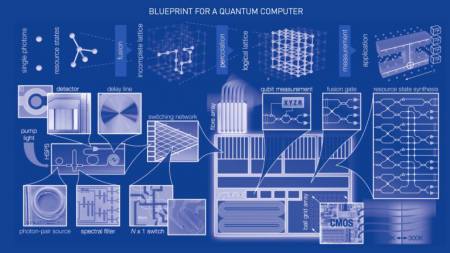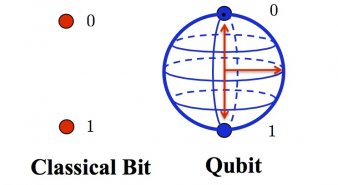August 16, 2016 – In the last few weeks Google, working with its team of quantum engineers has announced the ability to simulate a hydrogen molecule using its D-Wave system. D-Wave is the Vancouver company that has sold quantum computing technology to Google, NASA, Lockheed Martin, Los Alamos National Laboratory and others in the past few years and is today, closer than any company in bringing this technology to the market at a sustainable price point. The Google announcement is seen as a breakthrough of sorts, described by Ryan Rabbush, one of Google’s quantum team as an achievement that can revolutionize everything we do from designing solar cells to new materials and medicines.
Google isn’t alone in announcing quantum advancements. States Serguei Beloussov, CEO of Acronis, a cloud data protection, backup and disaster recovery service provider, “it is a technology that is developing very rapidly…..companies like Amazon, Alibaba, Google, want to be in front of that change.” But as optimistic as the quantum engineers act, it seems we are always talking about it being a decade away. Beloussov was a former doubting Thomas. He in past quotes stated that we wouldn’t see a working quantum computer materialize for another 20 to 40 years. But now he is far more optimistic stating “in the past two years, especially in the past year, there have been many advances in the field which were very hard to predict so it’s possible that these changes [can arrive closer to] the next five to ten years….personally, I think it will be less than ten years.”
One of the driving forces pushing quantum computing advancement is security. It appears that we are reaching the limits of encryption on binary-based computer systems. The advancements in artificial intelligence alone may make systems that we once thought 100% secure, an open book to hackers. That means data from communications to financial reports and national intelligence will no longer be secure.
As the illustration above states, with quantum computers we may see the end of security. Quantum computers aren’t susceptible to the hacking technology we are vulnerable to today. That’s because extracting a quantum bit (qubit) is very hard. A hacker trying to read quantum data has to deal with the physics of quantum mechanics in which the state of a bit is not limited to a “0” or “1”, an “on” or “off” or a “yes” or “no.
As seen in the illustration below a quantum bit can assume positions anywhere between and around a “0” or “1.” This fuzziness of position makes any attempt to tamper with data written on a quantum device impossible to hack into without either destroying the state of the data bit or alerting the user to the attempt. And even if alerted, the user’s data isn’t compromised.
With a quantum e-mail server Hillary Clinton’s and the Democratic National Committee’s emails would remain private. No chance Russian hackers or Wikileaks could share their contents with the world as we have seen in the last month in the run up to the American November presidential election.
One of the issues holding quantum computers back, however, is the absence of software. Last year I wrote about Cambridge Quantum Computing Limited and their release of the first DOS or operating system for quantum computers. Another company located in Vancouver, 1QBit, has been contracted to build software for D-Wave Fortune 50 customers. And in May this year D-Wave announced the launch of Quantum for Quants, an online community focused on the financial community to encourage the development of software tools for that industry. At the time of the announcement, Marcos de Lopez de Prado, Senior Managing Director, Lawrence Berkeley National Laboratory, stated, “Quantum computers enable us to use the laws of physics to solve intractable mathematical problems…..it will change the job of the mathematician and computer scientist in the years to come.” The Quantum for Quants community will share in the development of quantum software applications for finance.
And not to be forgotten is IBM and its foray into quantum computing. In the last few months IBM has announced the first publicly accessible quantum computer, a five qubit system (D-Wave’s are 1,000 qubit systems) that is accessible over the Internet. IBM calls its Quantum Experience the “birth of quantum cloud computing,” giving anyone hands-on access to working with quantum bits. The IBM initiative is focused on building a universal quantum computer programmable to do any computing task at an exponentially faster rate than existing computing systems and to apply the technology in science and business.
States Dario Gil, Vice President of Science and Solutions at IBM Research, “it is a beautiful challenge to pursue the path to build the first universal quantum computer, but it requires us to change how we think about the world.” Why is that? Because we live in a world governed by classical physics and its rules and limitations. They don’t exist in the world of quantum mechanics which opens up a natural world of quantum effects we have trouble conceiving let alone understanding.
So do we have an answer to the question posed in the headline of this posting? If you believe the experts, we have never been closer to commercial quantum computing. The timeline…..maybe 5, maybe 10 years, or maybe 40. So stay tuned to this website for the next quantum breakthrough pronouncement. Until then we remain subject to silicon, Moore’s Law and the limitations of binary logic.











